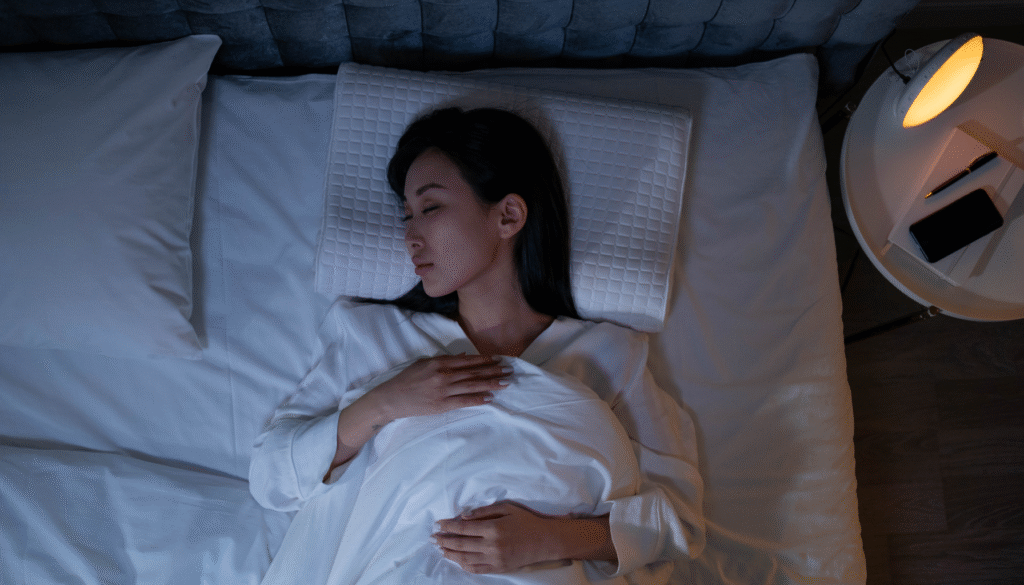Sleeping well is essential for physical, mental, and emotional health. A good night’s sleep helps regulate hormones, strengthens the immune system, improves mood, and boosts productivity. However, many people struggle to fall asleep or stay asleep throughout the night. If you’re looking for natural and effective ways to improve your sleep, this article is for you.
Below, discover techniques, habits, and tips that truly work—without the need for medication or miracle solutions.
1. Understand Your Sleep Cycle
The human body operates on a cycle called the circadian rhythm. This internal biological clock regulates when we feel sleepy and when we’re most alert.
Practical tip:
- Try to go to bed and wake up at the same time every day, including weekends. This reinforces your body’s natural rhythm and improves sleep quality over time.
2. Create a Relaxing Nighttime Routine
The mind needs time to unwind after a busy day. Having a consistent and relaxing bedtime routine signals the brain that it’s time to sleep.
What to include in your routine:
- Take a warm shower;
- Listen to calm music or nature sounds;
- Read something light (avoid suspense or heavy topics);
- Practice deep breathing or guided meditation.
3. Avoid Bright Lights and Screens Before Bed
The blue light emitted by phones, tablets, TVs, and computers can interfere with melatonin production—the hormone that induces sleep.
Tip:
- Turn off electronics at least 1 hour before bed;
- If you must use your phone, activate night mode or wear blue light-blocking glasses.
4. Exercise (But at the Right Time)
Physical activity helps regulate sleep by reducing stress and promoting relaxation. However, intense workouts close to bedtime can have the opposite effect.
Recommendations:
- Take light walks or do yoga in the evening;
- Do more intense workouts in the morning or afternoon.
5. Watch Your Diet and Avoid Stimulants
Foods and drinks containing caffeine (like coffee, black tea, chocolate, and soda) can disrupt sleep if consumed late in the day. Heavy meals before bed can also impair sleep quality.
Tip:
- Avoid caffeine after 4 PM;
- Choose light dinners with vegetables, lean protein, and complex carbs;
- Avoid alcohol close to bedtime.
6. Optimize Your Sleep Environment
Your bedroom should be comfortable, dark, quiet, and at a pleasant temperature. An inadequate environment can make it harder to relax and affect deep sleep.
Tips to improve your environment:
- Use blackout curtains to block outside light;
- Invest in a quality mattress and pillows;
- Use aromatherapy with oils like lavender and chamomile;
- Keep the room well-ventilated with a temperature between 64°F and 72°F (18°C and 22°C).
7. Try Natural Soothing Herbal Teas
Some herbs have calming properties and can be great allies when it’s time to sleep. Herbal teas are caffeine-free and help induce sleep in a gentle, natural way.
Great options:
- Chamomile tea
- Fennel tea
- Valerian tea
- Lemon balm tea
- Lavender tea
8. Breathing and Relaxation Techniques
Conscious breathing can help slow your heart rate and relax the body. One of the most popular methods is the 4-7-8 technique:
How to do it:
- Inhale through your nose for a count of 4;
- Hold your breath for 7 seconds;
- Exhale slowly through your mouth for a count of 8.
Repeat this cycle 3 to 4 times before going to bed.
9. Guided Meditation and Mindfulness
Mindfulness helps reduce racing thoughts and anxiety, promoting a calm, restful sleep.
Suggestion:
- Use guided meditation apps like Headspace, Calm, or Insight Timer.
- Or search YouTube for short bedtime meditation sessions.
10. When to Seek Medical Help
If you’re still having trouble sleeping despite trying all these strategies (such as chronic insomnia, sleep apnea, or sleepwalking), it’s best to consult a sleep specialist or neurologist.
Be alert if you:
- Take more than 30 minutes to fall asleep most nights;
- Wake up multiple times during the night;
- Feel tired and excessively sleepy during the day;
- Snore loudly or experience shortness of breath while sleeping.
Sleeping better naturally is possible with small adjustments to your routine, environment, and daily habits. By prioritizing sleep, you’re taking care of your overall health—physically, mentally, and emotionally.
Start making small changes today and you’ll notice results within a few weeks. Your body and mind will thank you!



